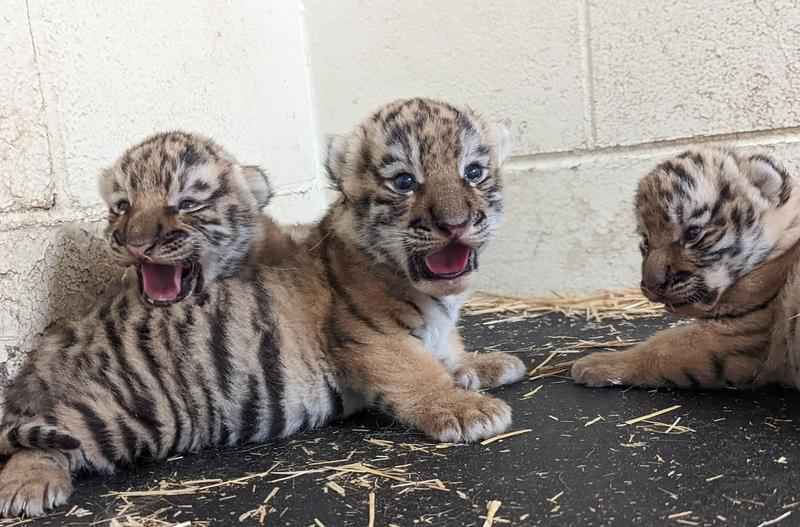Three new tiger cubs at Minnesota Zoo

Amur tiger cubs born under the watchful eye of the Zoo’s Animal Care and Health teams at the Minnesota Zoo.[Minnesota Zoo]
Sundari, or Dari for short, the female Amur tiger at the Minnesota Zoo had a special Mother’s Day. Dari successfully gave birth to a litter of cubs. Four Amur tiger cubs were born under the watchful eye of the Zoo’s Animal Care and Health teams, and three survived. There are only about 500 Amur Tigers in the wild.
Amur tigers are among the world’s most endangered animals.
“These cubs represent a major, positive step forward in our efforts to support the global population of Amur tigers,” Minnesota Zoo Director John Frawley said in a press release. “Having three thriving cubs, and a mother who is successfully raising them, is a true testament to the care and dedication provided by our incredible team of zookeepers and veterinary staff.”
Staff says it is not uncommon to lose a cub in a litter of this size.
“Dari has proven to be an incredible mother to these cubs,” Dr. Taylor Yaw, Chief Animal Care, Health, and Conservation Officer said in the release. “She has been attentive, nursing around the clock, and keeping the cubs groomed and by her side. The deep bond and trust that our keepers have formed with Dari over the years has allowed us to monitor the cubs and safely separate her from the cubs in order to perform routine health checks.”
Zoo officials say the two male cubs and one female cub continue to grow and reach milestones. They remain behind in a behind-the-scenes habitat with Dari. They say that the public will most likely be able to see the cubs in the second half of July.
Since opening its doors in 1978, the Minnesota Zoo has been a champion of tiger conservation – supporting efforts in the wild and playing a prominent role in the Association of Zoos and Aquariums Amur tiger Species Survival Plan (SSP).
The cubs were sired by the Zoo’s male Amur tiger, Putin, that passed away this past March. He and Dari successfully bred in late January; they are also the parents of Vera, who was born at the Minnesota Zoo in 2017 and transferred to a zoo in Nebraska in 2019 as part of an SSP breeding recommendation.